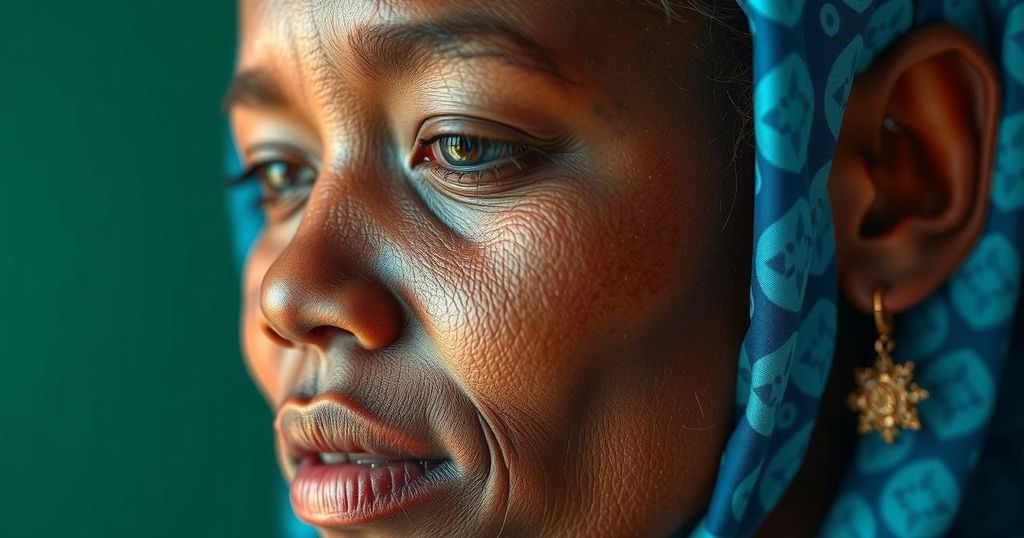Encouraging Outcomes from the WHO Skin NTDs App Assessment in Kenya

The WHO Skin NTDs App has demonstrated promising outcomes in its initial study in Kenya, revealing an average sensitivity of around 80% for its AI algorithms when diagnosing skin lesions. Frontline healthcare workers reported enhanced confidence and effectiveness in managing skin NTDs. WHO plans to replicate this study in multiple countries to further assess the app’s performance.
On November 25, 2024, the World Health Organization (WHO) convened with the Kenyan Ministry of Health to present the preliminary results of the pioneering field assessment of the WHO Skin NTDs App, which utilizes two artificial intelligence (AI) algorithms. This groundbreaking study involved collaboration with numerous institutions, including TDR and the University of Bristol, to evaluate the effectiveness of AI-driven support tools in managing skin-related neglected tropical diseases (NTDs).
Conducted across five counties in Kenya between June and October 2024, this study witnessed the participation of 40 primary healthcare workers who collected images of skin lesions from 605 patients. Notably, one AI algorithm was created by Universal Doctor for the WHO, focusing on 12 skin NTDs, while the other was developed by Belle.ai for 24 prevalent skin conditions. The initial findings indicated that both algorithms demonstrated an average sensitivity of roughly 80% when compared to diagnoses made by three board-certified dermatologists, illustrating their significant potential in clinical settings.
Dr. Joyce Onsongo, the WHO NTD officer in Kenya, remarked on the pressing public health issue of skin diseases in the region, which constitute 10-30% of outpatient visits, compounded by a shortage of dermatologists. The WHO Skin NTDs App is thus aimed at enhancing disease management among healthcare providers. Dr. José Antonio Ruiz Postigo highlighted the study’s swift execution in underserved areas as a remarkable accomplishment, emphasizing the encouraging results derived from it.
Feedback from frontline healthcare professionals who utilized the app revealed that they felt a boost in their self-esteem and confidence in assessing skin lesions. A mean score of 3.82 out of 5 was recorded on the User Version of the Mobile Application Rating Scale (uMARS), with focus group discussions yielding a score of 8 out of 10. The app was perceived as a collaborative diagnostic tool, fostering trust among peers and patients while helping to reduce the stigma surrounding skin NTDs.
Moving forward, the WHO intends to perform a comprehensive analysis of these results to establish subsequent strategies. Plans are underway to replicate this study across Brazil, Cameroon, Côte d’Ivoire, and India to further evaluate the performance of the AI algorithms in diverse epidemiological contexts.
Skin-related neglected tropical diseases (NTDs) represent a substantial public health challenge, particularly in countries with limited access to dermatological care. The WHO Skin NTDs App was developed to address these challenges by leveraging artificial intelligence to assist healthcare practitioners in diagnosing and managing these conditions. This app is pivotal in enhancing the capacity of primary care workers, especially in resource-limited settings where dermatologists are scarce. The application of AI in healthcare is gaining traction, aiming to improve diagnostic accuracy and patient outcomes.
The WHO Skin NTDs App has shown promising results in its initial assessment in Kenya, reinforcing the potential for AI-driven solutions in addressing skin-related NTDs. With average sensitivity rates near 80% and positive feedback from healthcare professionals, this initiative is set to improve patient care and outcomes significantly. The upcoming plans to expand the study into other countries exemplify WHO’s commitment to enhancing healthcare delivery through innovative technologies.
Original Source: www.who.int







